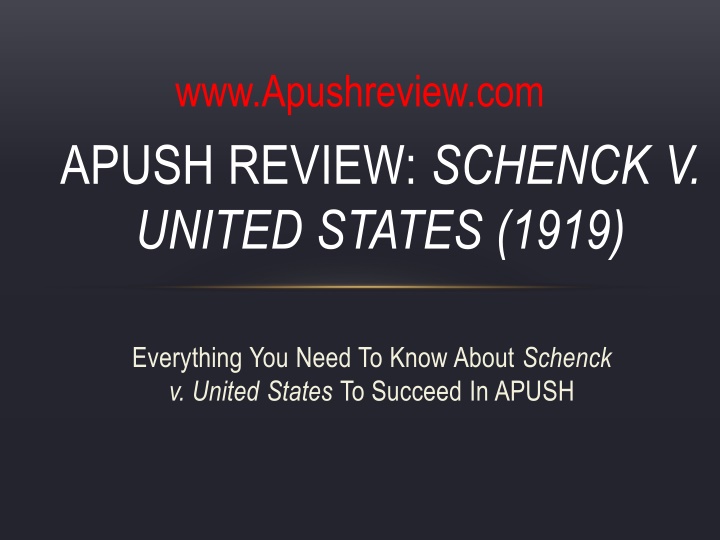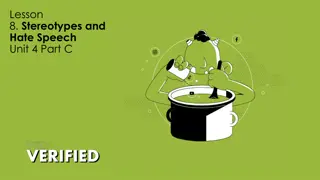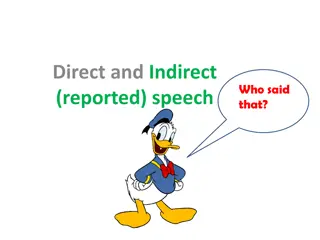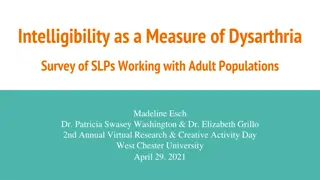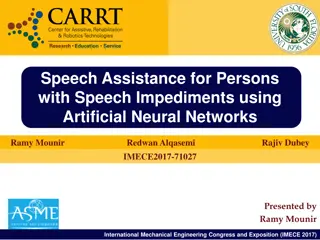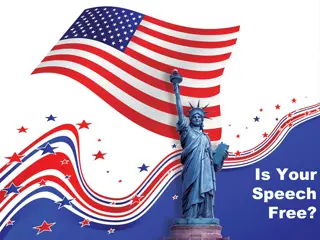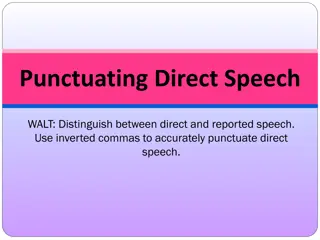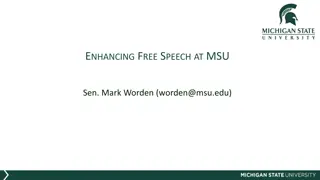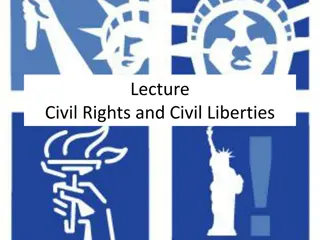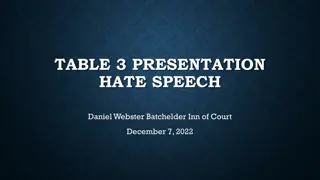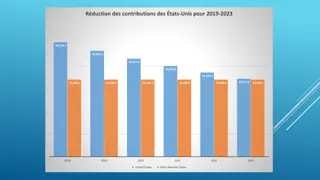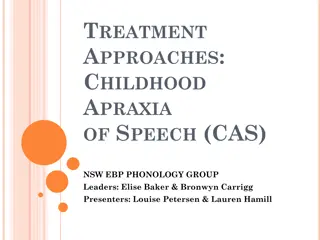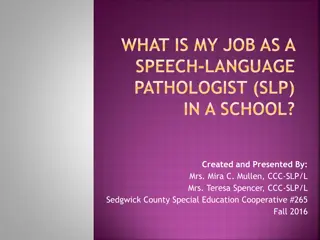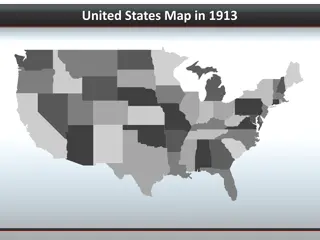Schenck v. United States (1919) - Understanding the Impact on Free Speech Rights
Explore the case of Schenck v. United States (1919) and its significance in shaping free speech rights during times of war. Learn about Schenck's opposition to the war, the legal arguments presented, the Supreme Court decision, and the lasting effects on personal liberties in times of crisis.
Download Presentation

Please find below an Image/Link to download the presentation.
The content on the website is provided AS IS for your information and personal use only. It may not be sold, licensed, or shared on other websites without obtaining consent from the author.If you encounter any issues during the download, it is possible that the publisher has removed the file from their server.
You are allowed to download the files provided on this website for personal or commercial use, subject to the condition that they are used lawfully. All files are the property of their respective owners.
The content on the website is provided AS IS for your information and personal use only. It may not be sold, licensed, or shared on other websites without obtaining consent from the author.
E N D
Presentation Transcript
www.Apushreview.com APUSH REVIEW: SCHENCK V. UNITED STATES (1919) Everything You Need To Know About Schenck v. United States To Succeed In APUSH
KEY IDEAS BEFORE THE CASE US entered World War I in 1917 Espionage Act of 1917: Made it illegal to interfere with military operations, including the draft Illegal to cause or incite insubordination, disloyalty, mutiny, or refusal of duty, in the military or naval forces of the United States Sedition Act of 1918: Made it illegal to criticize the government
WHO WAS SCHENCK? Socialist that opposed the war Schenck passed out flyers urging individuals to resist the draft Violation of the Espionage Act Schenck argued the Act violated the 1st amendment Schenck appealed to the Supreme Court
"The question in every case is whether the words used are used in such circumstances and are of such a nature as to would not protect a man in falsely shouting fire in a theatre and causing a panic. [...] The question in every case is whether the words used are used in such circumstances and are of such a The most stringent protection of free speech THE SUPREME COURT DECISION create a clear and present danger that they will bring about the substantive evils that the United States Congress has a right to prevent. It is a question of proximity and degree. When a nation is at war, many things that might be said in time of peace are such a hindrance to its effort that their utterance will not be endured so long as men fight, and that no Court could regard them as protected by any constitutional right." that Congress has a right to prevent. The Supreme Court unanimously agreed that Shenck broke the law nature as to create a clear and present danger that they will bring about the substantive evils Justice Oliver Holmes, Jr. Free speech does not allow you to yell fire in a theater Does free speech allow you to yell theater in a fire hall?????
EFFECTS OF THE CASE Redefined the 1st amendment In times of war and crisis, personal liberties decrease Seen in: The Civil War suspension of habeas corpus World War II Internment Camps Cold War 2nd Red Scare
THANKS FOR WATCHING! Subscribe to my channel Help spread the word Questions? Comments? Ideas for videos? Leave in comments Who has the better mustache?
